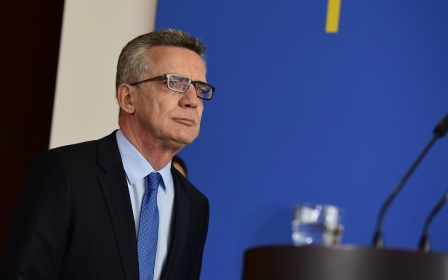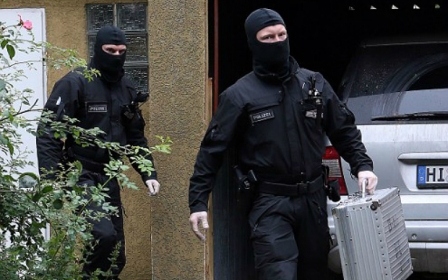Merkel party slumps in Berlin vote as anti-migrant AfD gains

German Chancellor Angela Merkel's party suffered a bruising loss in Berlin state elections on Sunday while the right-wing populist AfD again gained support, capitalising on anger over her open-door refugee policy.
The anti-Islam Alternative for Germany party won about 12 percent, according to broadcasters' exit polls in the capital, which prides itself on being a hip, multicultural city - gaining seats in the 10th of Germany's 16 states a year ahead of national elections.
Merkel's Christian Democratic Union won just 18 percent - its worst postwar result in the city, before or after the 1989 fall of the Berlin Wall - according to the exit polls, likely spelling the end of its term as junior coalition partner to the Social Democrats, who won 23 percent.
The election in the chronically indebted city-state of 3.5 million people was dominated by many local issues including poor public services, crumbling schools, late trains and a housing shortage, as well as how to cope with the migrant influx.
Days before the election, Mayor Michael Muller had warned that a double-digit score for the AfD “would be seen around the world as a sign of the return of the rightwing and the Nazis in Germany,” the Guardian reported.
“Berlin is not any old city,” the Social Democrat politician wrote on Facebook on Thursday, according to the Guardian. “Berlin is the city that transformed itself from the capital of Hitler’s Nazi Germany into a beacon of freedom, tolerance, diversity and social cohesion.”
Nonetheless, the vote marked another milestone for the upstart AfD, which has campaigned on a xenophobic platform, similar to France's National Front or far-right populists in Austria and the Netherlands, and gained support especially in Berlin's poor eastern fringe districts.
A strong showing in Germany's biggest city means it "doesn't just benefit from discontent in rural areas but can establish itself ... in a city of millions that is known for its open lifestyle," said the Frankfurter Allgemeine Sonntagszeitung newspaper.
Germany took in one million asylum seekers last year, and more than 70,000 of them came to Berlin, with many housed in the cavernous hangars of the Nazi-built former Tempelhof airport, once the hub for the Cold War-era Berlin airlift.
Merkel - who was booed this week by right-wing activists shouting "get lost" - before the election conceded it was hard to reach the "protest voters" who have turned their backs on mainstream parties.
'Suicidal'
Merkel's CDU has a national majority - but in Berlin it has served as junior coalition partner to Mueller's SPD, traditionally the strongest party in the city.
As Mueller has rejected a new coalition with the CDU, Merkel's party may be cast out of the Berlin government altogether.
The SPD was seen likely to team up with the ecologist Greens and the far-left Die Linke party, both of which scored more than 16 percent support, according to ARD and ZDF exit polls.
Such a "red-red-green" coalition, its member hope, could one day be replicated at the national level.
Merkel, meanwhile, will face further pressure "to explain her political strategy," said Gero Neugebauer of Berlin's Free University.
"The more fearful within her party might be increasingly scared of losing power in 2017," he told the Handelsblatt business daily.
Casting his ballot on Sunday, police officer Tobias Ludley, 27, voiced concern about the AfD, a party he labelled "the wolf in sheep's clothing".
"The AfD is appealing to people who otherwise wouldn't vote, the protest voters," he said, worried about the party gaining ground in a city that was normally "a shining example of multiculturalism".
Stay informed with MEE's newsletters
Sign up to get the latest alerts, insights and analysis, starting with Turkey Unpacked
Middle East Eye delivers independent and unrivalled coverage and analysis of the Middle East, North Africa and beyond. To learn more about republishing this content and the associated fees, please fill out this form. More about MEE can be found here.




